Blog
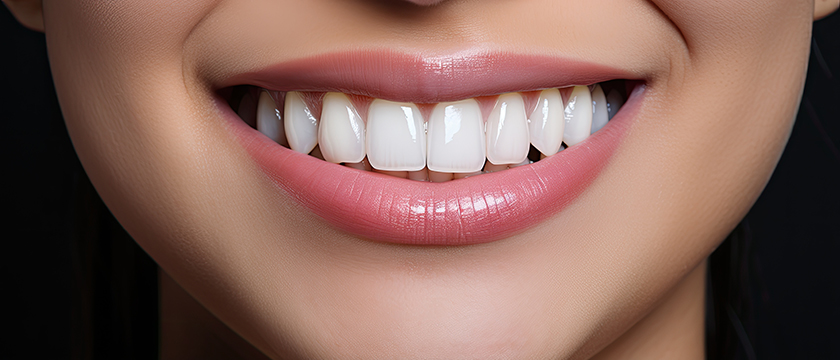 05 Apr 2024
05 Apr 2024
Enhance Your Smile with Front Teeth Veneers
The journey to a brighter, more confident smile often begins with enhancing the most visible part of your smile: the front teeth. Dental veneers, particularly for the front teeth, can transform your appearance and boost your self-esteem. At Trillium Smile Dentistry, we specialize in crafting bespoke veneer solutions that align with your unique dental aesthetics and lifestyle.
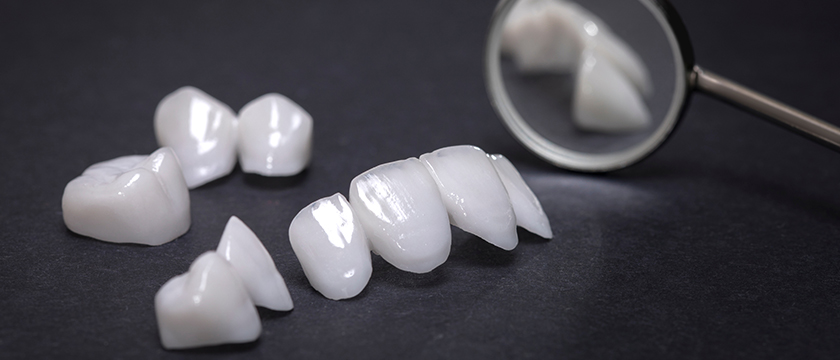 10 Dec 2023
10 Dec 2023
How to Choose the Ideal Veneers for Your Facial Features
Just like natural teeth, dental veneers come in many different sizes, colours, and shapes. Your veneers will look best if they are tailored to your unique facial features. Our guide will tell you everything you need to know about how to choose veneers that suit your face.
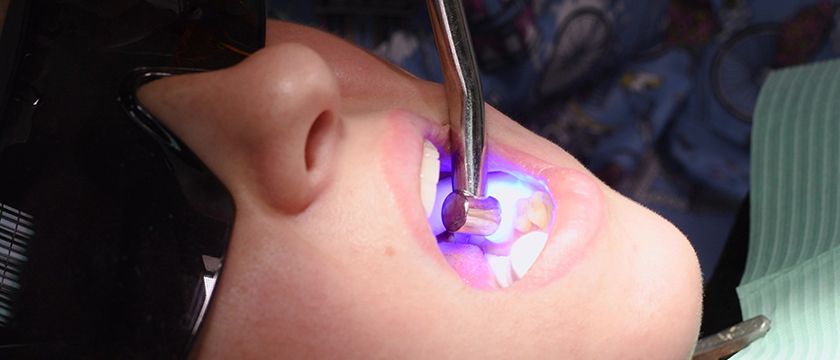 10 Oct 2023
10 Oct 2023
Dental Bonding: How to Achieve a Healthy and Bright Smile
Many people wish they could change a few small things about their smile but are not willing to undergo invasive treatments like orthodontics or crowns.
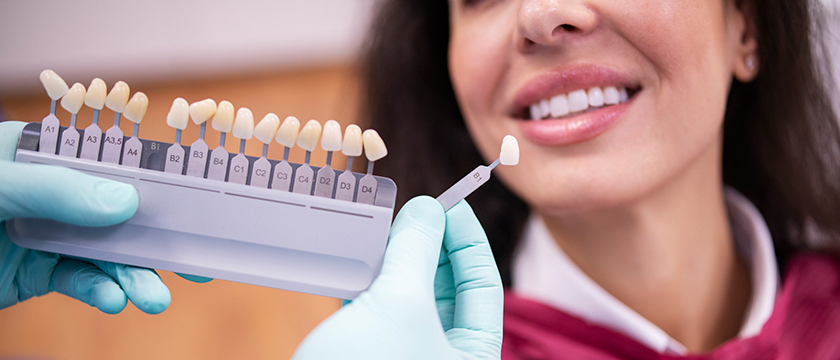 10 Jun 2023
10 Jun 2023
Dos and Don’ts to Protect Your Porcelain Veneers
Porcelain veneers are one of the most popular cosmetic dental treatments on the market today. Looking at porcelain veneers before and after images makes it clear why they are so sought-after: the results that can be achieved with them are nothing short of stunning.
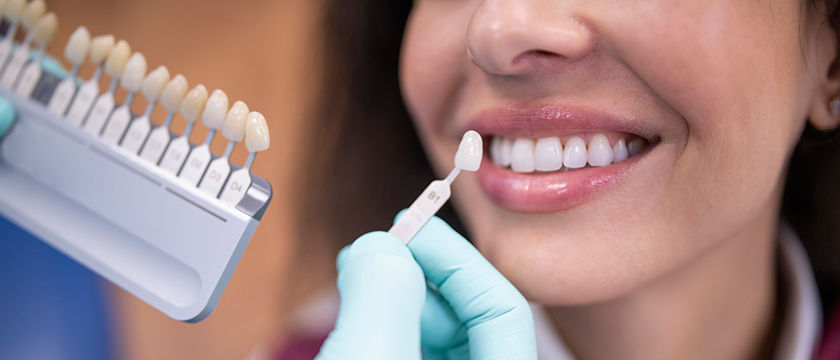 05 May 2023
05 May 2023
Composite Veneers vs. Porcelain Veneers: Differences You Should Know
Have you been thinking about getting dental veneers? If so, one of the first things you will need to decide is whether to go with composite or porcelain veneers. Each type has its own strengths and weaknesses that make it best suited for different situations. Choosing the right option for you will ensure you are fully satisfied with your treatment, but how should you do this? Our guide will shed some light on the differences between the two main types of veneers and help you decide which is best for your needs.
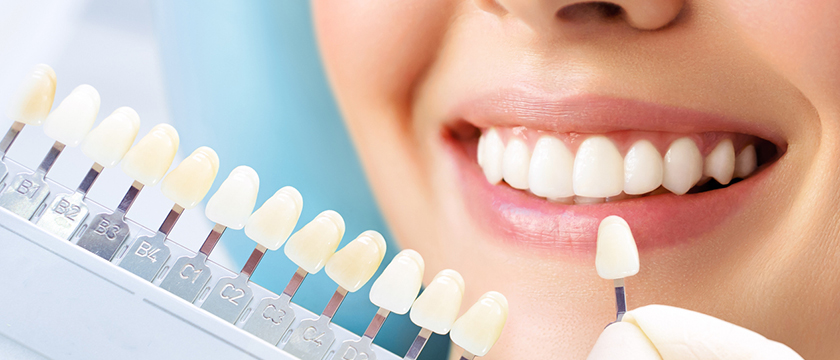 05 Apr 2023
05 Apr 2023
Top 8 Cosmetic Dental Treatments You Should Know
A beautiful smile can give you the confidence you need to live your best life. If you are unhappy with the shape, size, colour, or alignment of your teeth, cosmetic dentistry treatments can help you disguise these imperfections. Keep reading to learn more about a few of the most popular cosmetic dentistry treatments in Mississauga and how you can find the right dental clinic to perform them for you.
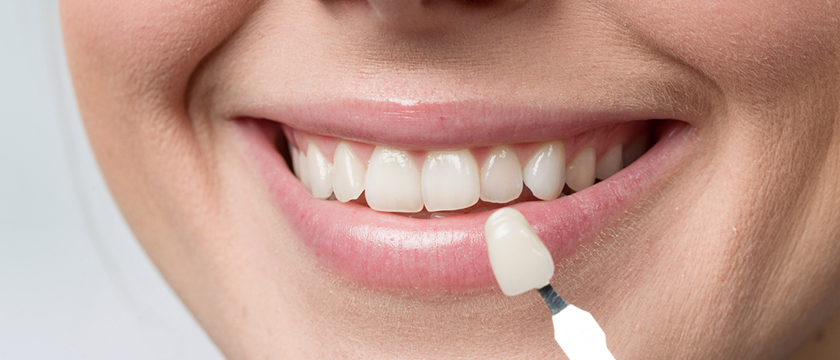 10 Feb 2023
10 Feb 2023
How to Take Care of Your Dental Veneers
Front teeth veneers are an easy way to get that radiant Hollywood smile you have always dreamed of, but they can fail if they are not given proper care. Taking steps to preserve your veneers will allow you to enjoy their many benefits for as long as possible. Follow the tips below to get started.
 05 Nov 2022
05 Nov 2022
Everything You Need to Know About Dental Veneers
Have you always wanted a dazzling celebrity smile? With dental veneers, your smile could look just like the ones you see on magazine covers. These thin layers of porcelain or composite can completely change the shape, size, position, and even colour of your teeth.
 10 Jun 2022
10 Jun 2022
8 Frequently Asked Questions about Composite Veneers
Composite veneers are one of the most popular cosmetic dental procedures available. They can help you disguise many dental imperfections, including gaps, cracks, chips, and more. However, many people interested in getting them feel they need more information before they can decide on the matter.
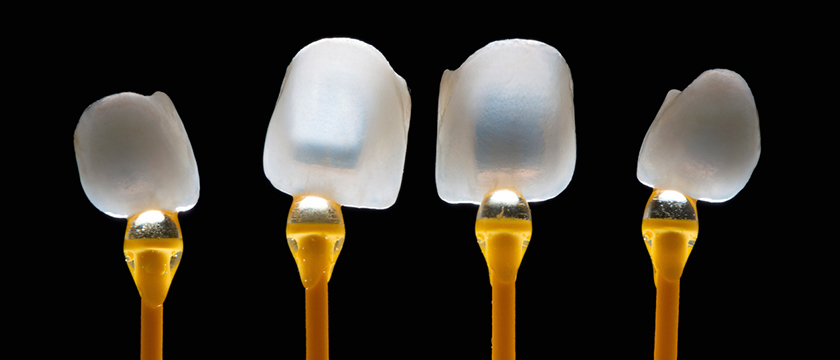 10 May 2022
10 May 2022
A Complete Guide to Veneers
Have you ever thought about an aspect of your smile that you would like to fix? Perhaps you chipped a tooth in your childhood and never got it fixed. Maybe you were born with porous, easily stained enamel that never responded to whitening treatments as you hoped. You may even have teeth that are too small or oddly shaped for your liking.
- 1
- 2
